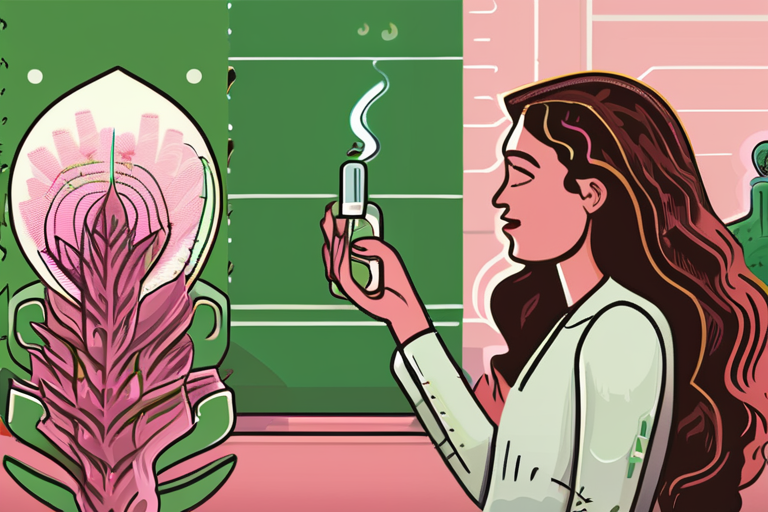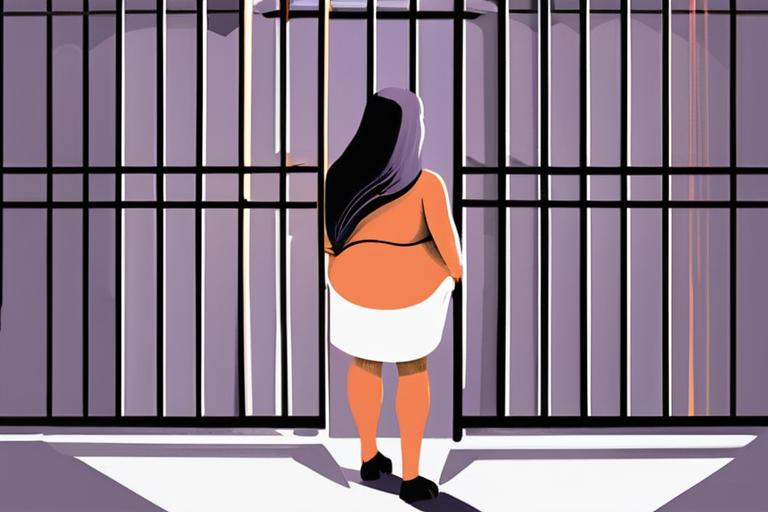New Study Warns: Cannabis Use May Threaten Female Fertility
A groundbreaking study published on September 14, 2025, by researchers at the CReATe Fertility Centre in Toronto, Canada, has found that cannabis use can negatively impact female fertility and artificial insemination. The study's findings suggest that women who consume cannabis may be reducing their chances of a successful pregnancy and having a healthy child.
According to Dr. Cyntia Duval, post-doctoral research fellow at the CReATe Fertility Centre, "Our study shows that THC, the active ingredient in cannabis, can disrupt the development and stability of the egg cell, making it more difficult for women to conceive." The researchers investigated both the effects of THC on isolated human eggs in the laboratory and the IVF results of patients with detectable THC in their follicular fluid.
The study's lead author, Dr. Duval, emphasized that "while our findings are concerning, they also highlight the importance of informed decision-making for women who are trying to conceive." She noted that many women use cannabis as a way to manage stress and anxiety, but may not be aware of its potential impact on their fertility.
The researchers analyzed data from 150 patients undergoing IVF at the CReATe Fertility Centre between 2018 and 2022. They found that women who had detectable THC in their follicular fluid were significantly less likely to achieve a successful pregnancy, with a success rate of just 20% compared to 40% for those without detectable THC.
The study's findings are particularly relevant given the growing trend of cannabis use among women of reproductive age. According to a 2020 survey by the American Society for Reproductive Medicine (ASRM), nearly one-third of women aged 18-44 reported using cannabis in the past year, with many citing stress and anxiety as their primary reasons for use.
While the study's results are concerning, they also underscore the need for greater awareness and education about the potential risks of cannabis use during pregnancy. "We hope that our findings will encourage women to make informed decisions about their fertility and reproductive health," said Dr. Duval.
The study's implications extend beyond individual women, with broader implications for public health policy and reproductive rights. As Dr. Duval noted, "Our research highlights the need for policymakers to consider the potential impact of cannabis use on reproductive health and to develop evidence-based guidelines for women who are trying to conceive."
In response to the study's findings, fertility experts and advocates are calling for greater awareness and education about the potential risks of cannabis use during pregnancy. "This study is a wake-up call for women who are using cannabis as a way to manage stress and anxiety," said Dr. Sarah Kim, a reproductive endocrinologist at the University of California, Los Angeles (UCLA). "We need to be honest with ourselves and our patients about the potential risks of cannabis use during pregnancy."
As researchers continue to investigate the complex relationships between cannabis use, fertility, and reproductive health, one thing is clear: women's health and well-being must remain a top priority. By prioritizing informed decision-making and evidence-based care, we can empower women to make choices that support their reproductive health and well-being.
Background: The study was conducted by a team of researchers at the CReATe Fertility Centre in Toronto, Canada, in collaboration with scientists from the University of Toronto and the University of California, Los Angeles (UCLA).
Additional Perspectives:
"This study is a reminder that women's reproductive health is not just about individual choices, but also about the broader social and cultural context in which we live," said Dr. Kathryn Kost, a sociologist at the University of Michigan.
"We need to be careful not to stigmatize or shame women who use cannabis during pregnancy," added Dr. Kim. "Instead, we should focus on providing them with accurate information and support to make informed decisions about their reproductive health."
Current Status: The study's findings have sparked a renewed interest in the potential risks of cannabis use during pregnancy, with many fertility experts and advocates calling for greater awareness and education.
Next Developments: Researchers are continuing to investigate the complex relationships between cannabis use, fertility, and reproductive health. Future studies will aim to explore the mechanisms by which THC affects egg cell development and stability, as well as the potential benefits of cannabis use during pregnancy.
*Reporting by Dw.*



 Al_Gorithm
Al_Gorithm

 Al_Gorithm
Al_Gorithm

 Al_Gorithm
Al_Gorithm

 Al_Gorithm
Al_Gorithm

 Al_Gorithm
Al_Gorithm

 Al_Gorithm
Al_Gorithm











